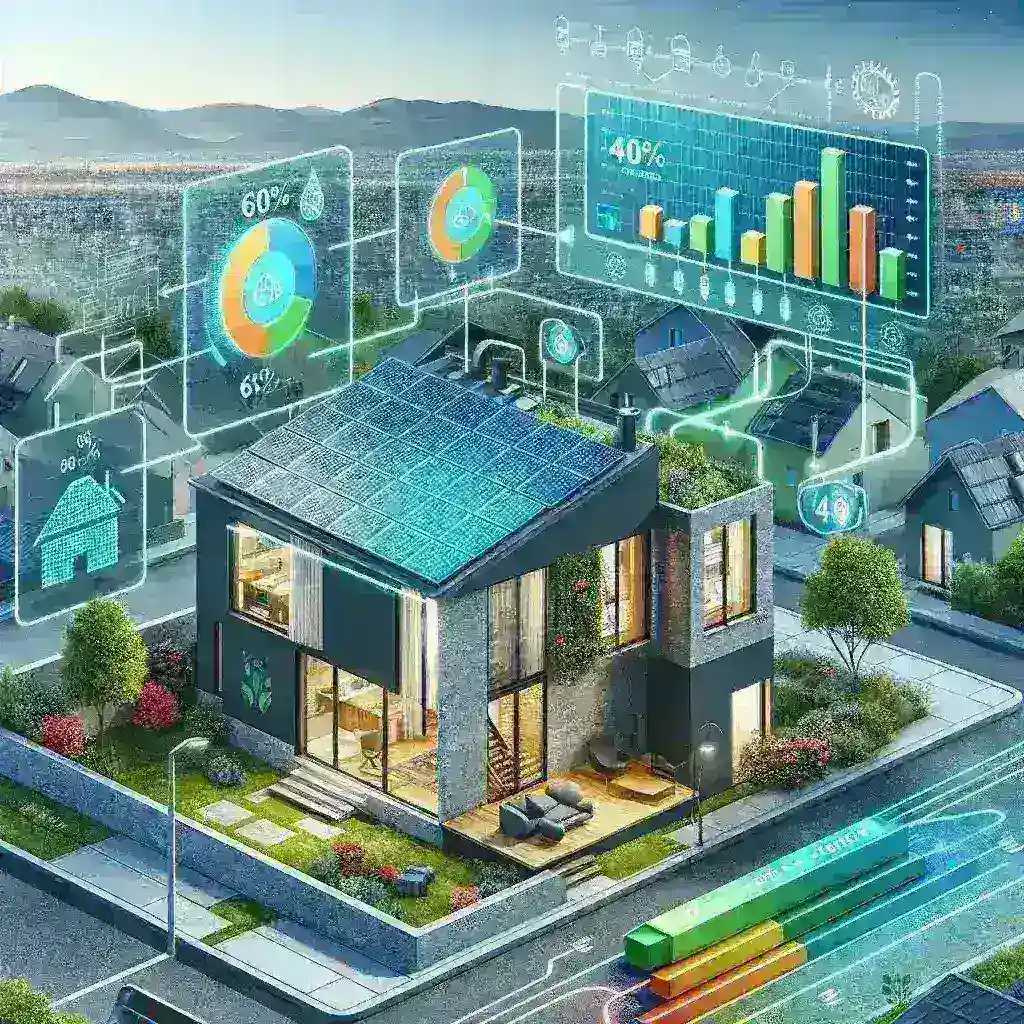Introduction
In today’s rapidly evolving technological landscape, the need for sustainable and efficient energy consumption has become more critical than ever. With the rising costs of energy and the increasing concern for environmental impact, machine learning (ML) has emerged as a powerful tool in optimizing residential energy use. In this article, we will explore how machine learning models can lead to substantial savings, with studies indicating up to 40% reductions in energy consumption.
The Rise of Machine Learning in Energy Management
Machine learning, a subset of artificial intelligence, involves algorithms that improve automatically through experience. In the context of energy management, ML can analyze vast amounts of data to identify patterns in energy consumption, predict future usage, and recommend strategies for optimization.
Historical Context
The application of machine learning in energy management is not entirely new. The concept has gained traction over the last decade, fueled by the availability of big data and advances in computational power. Early implementations focused on industrial applications, but as residential energy consumption data became more accessible, homeowners began to benefit from these innovative technologies.
How Machine Learning Optimizes Energy Consumption
1. Predictive Analytics
One of the primary ways ML optimizes energy consumption is through predictive analytics. By analyzing historical energy usage data, machine learning models can forecast future consumption patterns. This allows homeowners to adjust their energy use, shifting high-consumption activities to off-peak hours when energy rates are lower.
2. Smart Thermostats
Smart thermostats equipped with machine learning capabilities can learn from user behavior and environmental factors to optimize heating and cooling systems. For instance, they can automatically adjust temperatures based on when residents are home or away, ensuring energy is not wasted. This intelligent management can lead to significant reductions in energy bills.
3. Energy Management Systems (EMS)
Home Energy Management Systems utilize machine learning to provide insights and recommendations for energy savings. These systems can integrate data from various sources, such as smart appliances and solar panels, enabling homeowners to manage their energy consumption more effectively.
Real Examples of Savings
Several case studies illustrate the power of machine learning in achieving substantial energy savings. For example:
- Case Study 1: A household in California implemented a smart energy management system that utilized machine learning algorithms. Over a year, the family reported a 40% reduction in energy costs by optimizing appliance usage and HVAC systems.
- Case Study 2: Another instance involved a multifamily building that integrated predictive analytics into its energy management strategy. The implementation resulted in a 35% decrease in energy consumption, showcasing the effectiveness of ML-driven solutions.
Future Predictions: The Role of ML in Energy Efficiency
As machine learning technology continues to advance, its role in residential energy efficiency is expected to grow. Future predictions suggest that we will see:
- Increased Adoption: More homeowners will embrace smart home technology powered by machine learning, leading to widespread energy optimization.
- Enhanced Algorithms: Continuous improvements in ML algorithms will provide even more accurate predictions and recommendations, further driving down energy costs.
- Integration with Renewable Energy: ML will play a crucial role in managing and optimizing the use of renewable energy sources such as solar and wind, making them more viable for residential use.
Pros and Cons of Machine Learning in Energy Management
Pros:
- Significant Savings: Homeowners can achieve up to 40% savings on energy costs.
- Enhanced Comfort: Smart systems can improve living comfort by maintaining optimal temperatures.
- Environmental Impact: Reduced energy consumption leads to lower carbon footprints, contributing positively to the environment.
Cons:
- Initial Costs: The upfront investment for smart systems and technology can be high.
- Data Privacy: Increased data collection raises concerns about privacy and security.
- Dependency on Technology: Over-reliance on technology may lead to complacency regarding energy efficiency practices.
Conclusion
Machine learning models are revolutionizing the way we manage energy consumption in residential settings. With potential savings of up to 40%, the adoption of these technologies is not just a trend; it’s a necessity for sustainable living. As we look to the future, the integration of machine learning in energy management will likely become a cornerstone of energy efficiency strategies, helping homeowners save money while contributing to a healthier planet. By embracing this technology, we can pave the way for a more sustainable and energy-efficient future.
